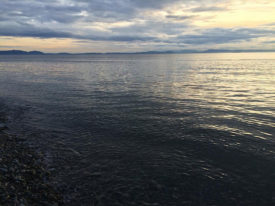This recent Vancouver Sun article reported what could turn out to be an important step in British Columbia: reforming the commercial salmon fishery. In this fishery, as in most of the world’s fisheries, the harvest is regulated by the length of the season—a crude system that ensures over-investment in gear, massive waste of resources, temporary gluts in the marketplace, and great risks to fishers forced to go to sea despite storms.
The best managed fisheries in the world are typically operated under a system in which individual fishers (or, in some cases, tribes or communities) own tradeable permits to harvest a share of the total catch. The North Pacific halibut fishery is an example of a fishery in which boat owners can decide when in the year they want to catch their share, based on markets, weather, and what’s most efficient for them. It also helps the fish: because fishers are guaranteed a share, they want the fishery to grow. So all paricipants have an incentive to lobby for sustainable management and to report cheaters. (Read about it in Sightline’s 2001 volume.) The Sun article suggests a similar system may be considered for the province’s salmon runs.








